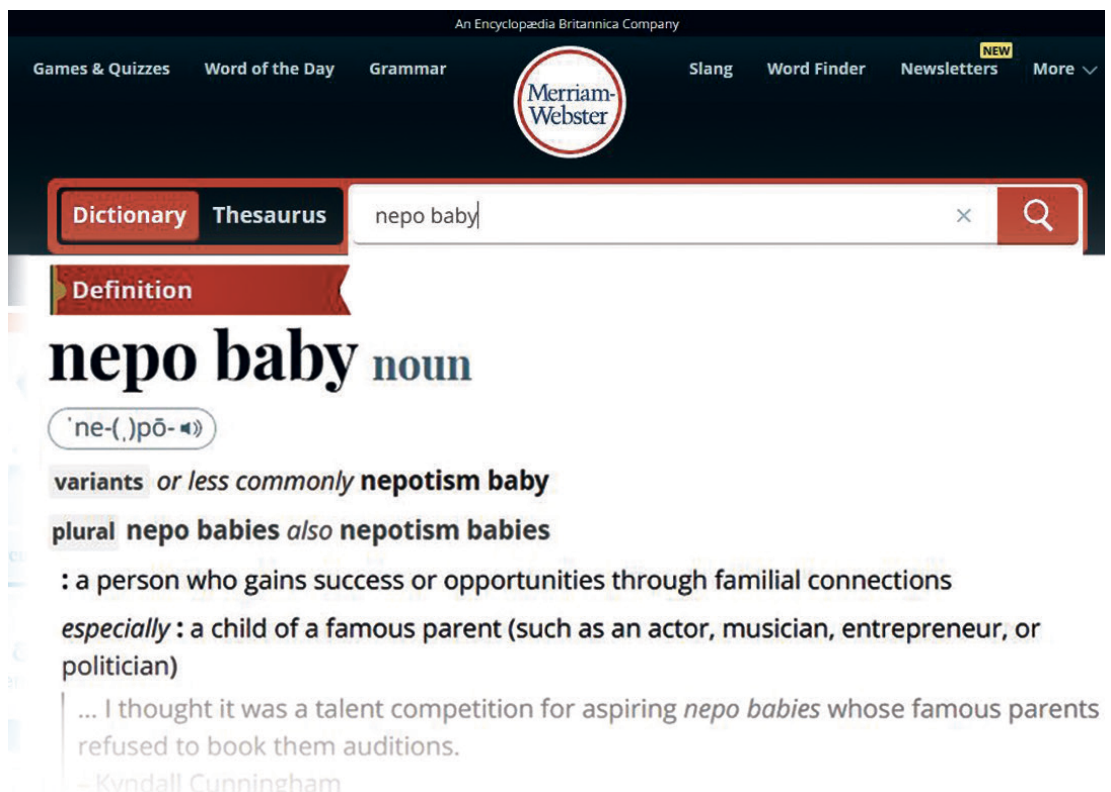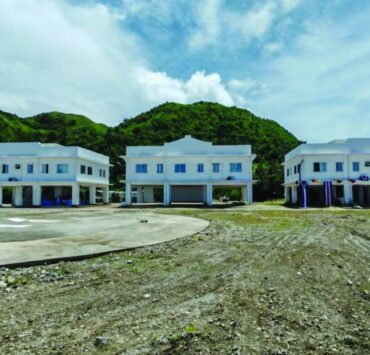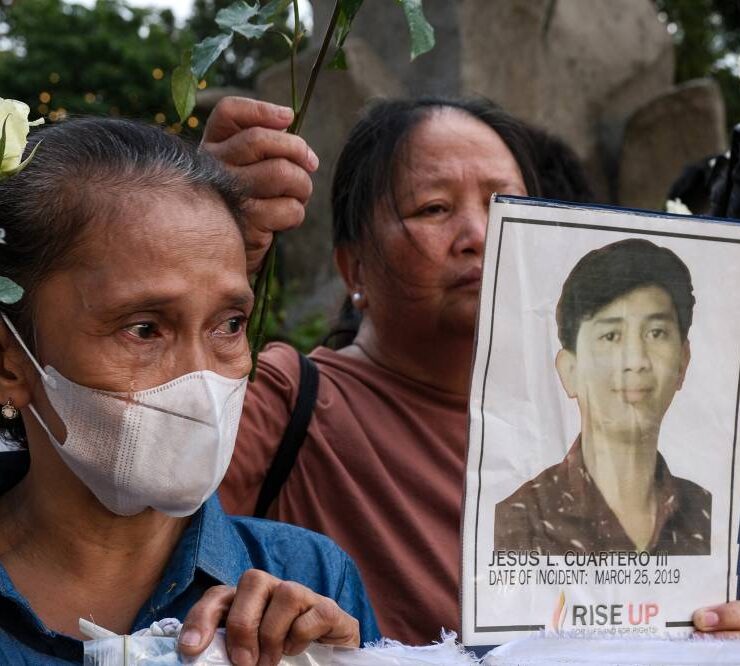Rage over infra deals vented on ‘nepo babies’

Philippine social media was abuzz in the past week with the collective slamming and calling out of the so-called nepo babies of politicians and private contractors who had been flaunting their ostentatious lifestyles as reports of corruption-tainted flood control projects gripped the nation.
The “nepo baby shaming” followed President Marcos’ directive to begin a lifestyle check on all officials after he disclosed defective or nonexistent projects attributed to 15 companies, out of over 2,000, that accounted for 18 percent of over P545 billion spent by the government to control floods across the country.
The public disclosure of these private contractors who bagged the largest flood control projects sent many netizens to scour TikTok, Instagram and other social media platforms for names associated with politicians and the owners of these companies, leading them to the children, mostly daughters, of the biggest of them.
Collages
Some social media users made collages of their clothes and accessories, including designer bags they had acquired from top brands Chanel, Fendi, Yves Saint Laurent, Celine, among others, to show the hundreds of thousands of pesos they cost and paid for by their parents who were either politicians or contractors or both.
One showed the daughter of a contractor wearing a scarf-jacket with matching shoes and a bag, whose total dollar amount was equivalent to P680,170, money that a minimum wage earner in Metro Manila would earn in 31 months.
These children of politicians and contractors themselves have large numbers of followers on their various social media platforms, which they had shut down after the raucus over their ostentatious displays of wealth.
People belonging to political dynasties also became the subject of scrutiny and their children were not spared from criticisms for their lavish lifestyles.
Hollywood term
The term “nepo babies” gained popularity in 2022 to refer to offsprings of Hollywood actors. It has since included children of politicians, captains of industry and other celebrities.
The Merriam-Webster dictionary says the word means “a person who gains success or opportunities through familial connections,” or nepotism.
Kabataan Rep. Renee Co on Saturday said there should be no sympathy for the nepo babies who wallow in the fruits of ill-gotten wealth.
“Nepo babies? They are no longer babies,” Co said in a statement. “They do not need the public’s sympathy. Let’s have more mercy on the true scholars of the country who endure rotten classrooms and fees.”
“Reality check: the super bourgeois lifestyle of the 1 percent is only possible because of the exploitation and theft of the 99 percent of the working people. The anger of the people is valid because stealing is wrong, period,” she said.
Co added: “And the president of the corrupt kids club himself, Marcos Jr., should not get away with it.”
Malacañang on Friday said that the President was willing to undergo a lifestyle check himself.
Sociologist Ash Presto said she wouldn’t refer to the bashing of the nepo babies as “online shaming,” but more of a form of an “online callout.”
“It’s not even exposing a luxurious lifestyle because that lifestyle is not hidden, but it’s almost like drawing attention to a luxurious lifestyle and/or online callout,” Presto told the Inquirer.
Presto explained that the “online callout” was beneficial to Filipino society, but only in the short term, in seeking accountability.
‘Institutionalized’
The University of the Philippines (UP) sociology professor said that in the “medium term”—up to the next national election in 2028—this effort needed to be “institutionalized” and should be “intersectoral.”
Those drawing attention to these luxurious lifestyles could report them to the government, such as through the website set up by Malacañang, the sumbongsapangulo.ph, she said.
Another option for concerned citizens would be to partner with civil society organizations that serve as watchdogs working to seek accountability, or find like-minded individuals sharing the same concern.
The callouts to these nepo babies will benefit Filipinos if they remain consistent till the 2028 polls, according to Presto.
But if the same political dynasties win again in 2028 and beyond, “it would cause, I would say, probably disillusionment among the public,” she said.
“So, after all the callouts have been said and done, and they still managed to win, what else would the people think of accountability? That it’s just a passing trend, that it would end at some point, disaggregated in terms of the time frame,” she added. “When we stop at callouts, it might actually be risky in the long term.
Danilo Arao, a journalism and media professor also from UP Diliman, said that while these callouts were welcome in seeking accountability, people should be mindful and discerning on who they are calling out. In some instances, some of these social media personalities are only distant relatives of the targets of criticisms.
“We have to be nuanced and we have to be careful in terms of calling out such personalities,” he said, adding that the public should verify statements attributed to these personalities.
The online callout on these nepo babies, according to Arao, could either lead them to change their “sorry ways” or to hide their wrongdoings.
He agreed with Presto that for the online callout to succeed in the long term, it has to be consistent.
“Criticism should be constant,” he said. “But the messaging should not be too repetitive where people will become so inundated with the same wording, with the same messaging.”
‘OG’ nepo babies
Arao stressed that criticisms should not rely on name-calling and even doxxing, which would do no good and not help in raising awareness of the public.
These criticisms are being aimed at not only the current “nepos” but also at the “OG (original) nepo babies,” who he said were the children of the late dictator—including the two most prominent—his son and namesake, President Ferdinand Marcos Jr. and daughter, Sen. Imee Marcos.
“I have to also mention the fact that we don’t just dwell on the present. We also have to look at the past,” Arao said. “It’s like this, our hatred toward the dynasties and the big business interests should be more contextual and historical so that we will include everybody.”
The Center for People Empowerment in Governance (CenPEG) called on Filipinos to hold plunderers accountable, demand transparency in government and reject political dynasties as it condemned what it described as the “unimaginable” corruption entrenched in the Philippine government.
The public policy think tank said corruption has gone beyond isolated acts of greed and was now deeply rooted in the country’s political structures, undermining public trust and depriving citizens of basic services.
‘Shameless plunder’
“The shameless plunder of public funds, the capture of state institutions by powerful elites, and the systemic culture of impunity rob the Filipino people of their right to decent public services, honest governance, and genuine national development,” CenPEG said.
The group cited pork barrel politics, anomalous procurement deals, ghost projects, overpriced infrastructure, and the diversion of funds meant for the poor as examples of how billions of pesos were drained from the national treasury while millions remain in poverty.
“Every peso stolen is food taken from the hungry, medicine withheld from the sick, classrooms denied to children, and protection stripped from vulnerable communities,” it added.
“The unimaginable corruption in government must end. The Filipino people deserve leaders who serve, not steal,” CenPEG said.





















